Neptune - Blog Posts

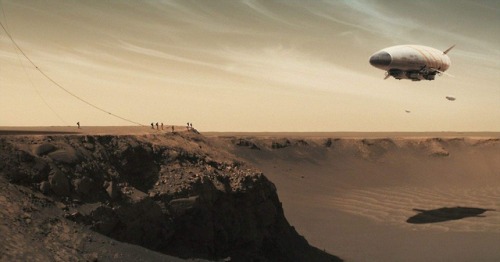
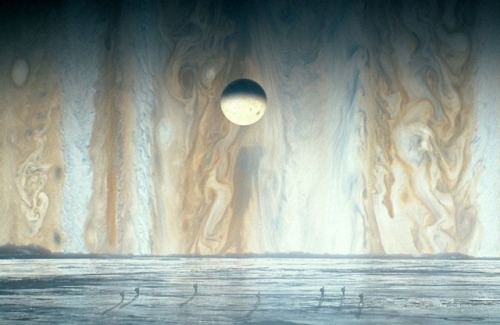

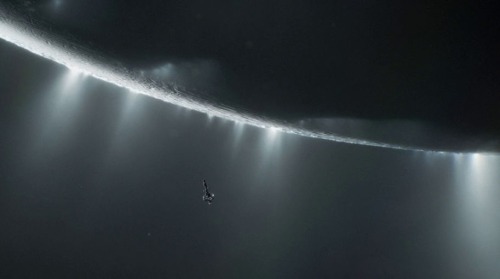
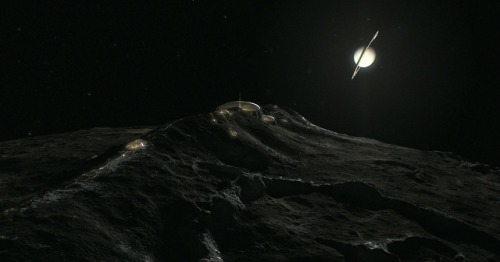
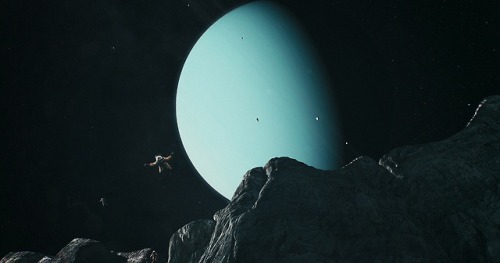
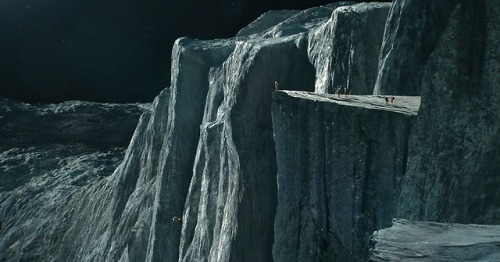

Will we one day explore the worlds of our solar system? How long will this take?
We have a diversity of worlds in our solar system. Majestic places…
Imagine being able to visit Mars and its hostile climate. Imagine being able to visit the moons of Jupiter, observe Io: the volcanic moon, Europa, the frozen moon and Ganymede a moon larger than Mercury itself and that has its own magnetic field. Imagine visiting the moons of Saturn and maybe passing close to your rings… Imagine orbiting or floating through Titan’s atmosphere and closely watching its lakes and seas of methane and liquid ethane. Imagine getting to know the geysers of Enceladus, the valleys of Tethys, and the craters of Mimas… Imagine being able to see the moons of Uranus and have a view of Verona Rupes, the largest cliff of the solar system, located in Miranda. Imagine being able to be in Triton and to be able to observe the cold and azualdo Neptune in the sky…
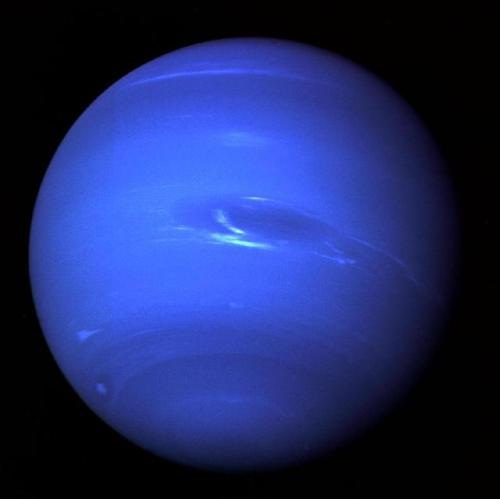
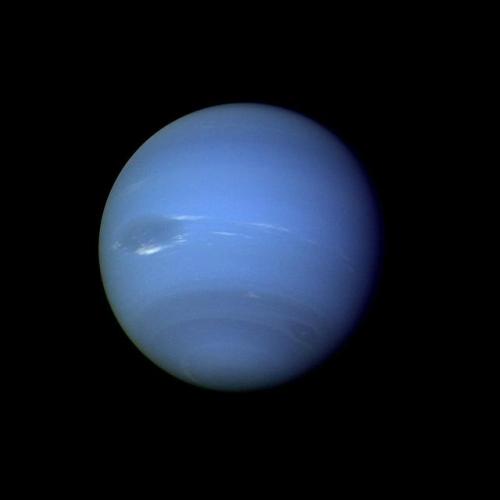
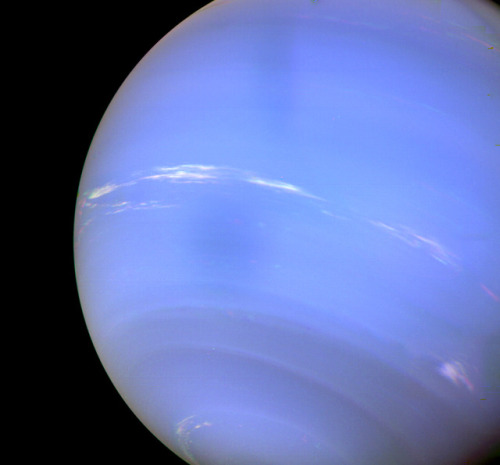
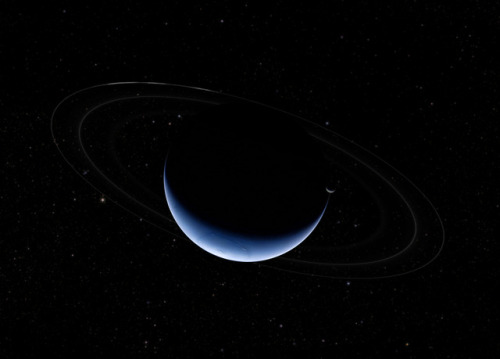
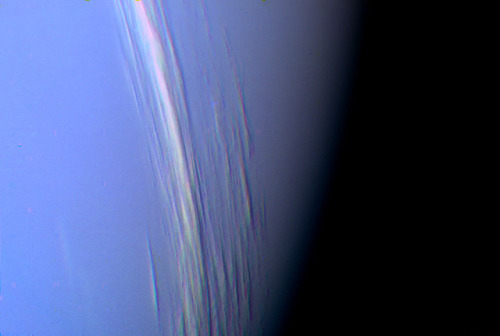
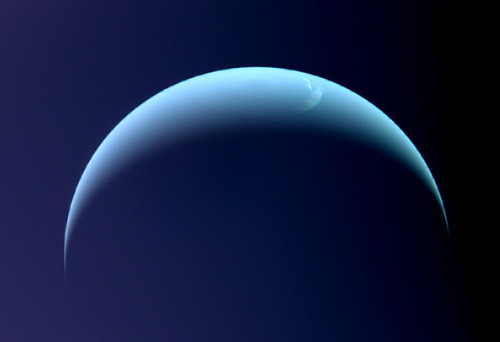
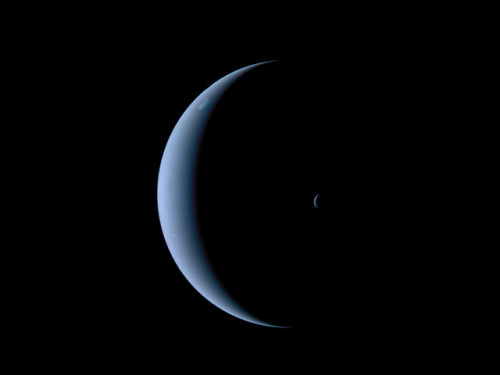
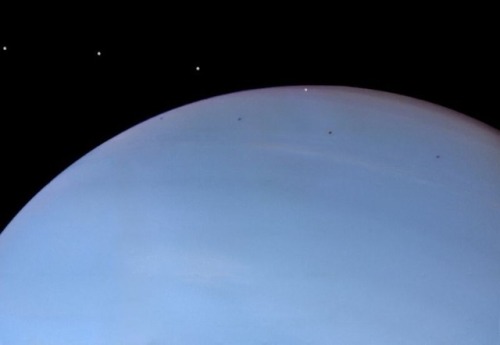
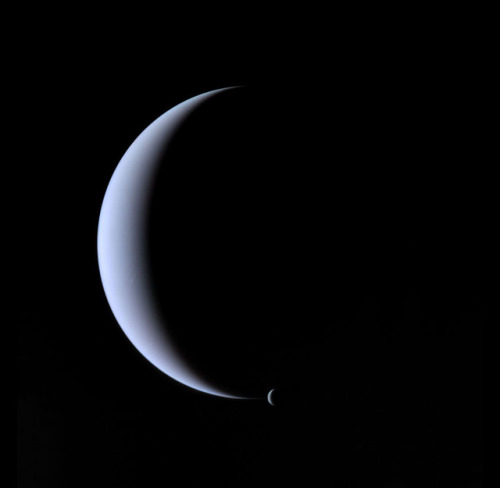
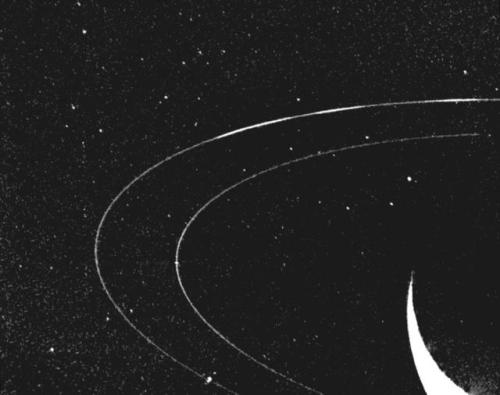
Neptune ♆
On this day in 1846 was discovered the planet Neptune.
The ice giant Neptune was the first planet located through mathematical predictions rather than through regular observations of the sky. (Galileo had recorded it as a fixed star during observations with his small telescope in 1612 and 1613.) When Uranus didn’t travel exactly as astronomers expected it to, a French mathematician, Urbain Joseph Le Verrier, proposed the position and mass of another as yet unknown planet that could cause the observed changes to Uranus’ orbit. After being ignored by French astronomers, Le Verrier sent his predictions to Johann Gottfried Galle at the Berlin Observatory, who found Neptune on his first night of searching in 1846. Seventeen days later, its largest moon, Triton, was also discovered.
Neptune is invisible to the naked eye because of its extreme distance from Earth. Interestingly, the highly eccentric orbit of the dwarf planet Pluto brings Pluto inside Neptune’s orbit for a 20-year period out of every 248 Earth years. Pluto can never crash into Neptune, though, because for every three laps Neptune takes around the Sun, Pluto makes two. This repeating pattern prevents close approaches of the two bodies.
Nearly 4.5 billion kilometers (2.8 billion miles) from the Sun, Neptune orbits the Sun once every 165 years.
Uranus’ blue-green color is also the result of atmospheric methane, but Neptune is a more vivid, brighter blue, so there must be an unknown component that causes the more intense color.
Despite its great distance and low energy input from the Sun, Neptune’s winds can be three times stronger than Jupiter’s and nine times stronger than Earth’s.
Winds on Neptune travel faster than the speed of sound.
In 1989, Voyager 2 tracked a large, oval-shaped, dark storm in Neptune’s southern hemisphere. This “Great Dark Spot” was large enough to contain the entire Earth.
Neptune has five known rings. Voyager 2’s observations confirmed that these unusual rings are not uniform but have four thick regions (clumps of dust) called arcs. The rings are thought to be relatively young and short-lived.
Neptune has 14 known moons, six of which were discovered by Voyager 2.
Triton, Neptune’s largest moon, orbits the planet in the opposite direction compared with the rest of the moons, suggesting that it may have been captured by Neptune in the distant past.
To know more about the planet Neptune click here and here.
Images credit: NASA/JPL- Caltech (some images processed by Kevin M. Gill)








Sometimes I wonder how beautiful the Universe is, and we do not even have to go that far. Imagine seeing Neptune and Uranus from their moons…
Images: x, x, x, x, x, x, x (artist’s impression)

I think I'll call #Neptune done #wktd #weknowthedevil #drawlloween

Earth is a super special world. It has life on it, and getting conditions just right so that life will survive is an incredibly difficult task. Other planets and other moons in our solar system may look like they could have life on them, but it just didn’t happen.
Life on other planets is for a different episode, though. In this one, I’m talking about what we can see on our close neighbors, the eight (maybe seven?) planets in our solar system. Learn how they were discovered, what naming conventions we use for them and their moons, how to differentiate between them, and what probes we’ve sent out to learn more about them. Also enjoy snippets from the lovely orchestral suite written for each planet by Gustav Holst! It’s the longest episode so far but I promise it’s worth it.
There’s a timeline below the cut in addition to the other resources because hooboy did I mention a lot of people. I may also put together a timeline of probes... But that’s for another podcast. Maybe the next podcast! Let me know what you think I should research by messaging me here, tweeting at me at @HDandtheVoid, or asking me to my face if you know me in real life. And please check out the podcast on iTunes, rate it or review it if you’d like, subscribe, and maybe tell your friends about it if you think they’d like to listen! Also below the cut are my sources, music credits, vocab list, and the transcript. I mention a book, a play, a poem, and a few works of art, and I quote an astronomy book in this episode so if you want to see that written down, those sources are there as well.
(My thoughts for the next episode were spectroscopy, auroras, or probes through the ages. Let me know by the 21st and I’ll have the next podcast up by July 31!)
Glossary:
auroras - a light display that occurs when a magnetosphere is sufficiently disturbed by solar wind that charged particles scatter into the upper atmosphere and lose their energy.
magnetosphere - an invisible barrier that surrounds a celestial objet. It is often generated by the movement of the liquid metal core of the object. Around a planet, it deflects high-energy, charged particles called cosmic rays that can either come from the Sun or, less often, from interstellar space.
prograde - when a planet spins from east to west.
retrograde - when a planet spins from west to east.
sol - a unit of time measuring one Martian day, or 24 Earth-hours and 40 Earth-minutes. The immediately previous Martian day is called yestersol.
transit of Mercury/Venus - when a planet passes in front of the Sun.
Script/Transcript
Timeline of people mentioned
Nicolaus Copernicus, Polish (1473-1543)
Tycho Brahe, Danish (1541-1601)
Galileo Galilei, Italian (1564-1642)
Johannes Kepler, German (1571-1630)
Simon Marius, German (1573-1625)
Pierre Gassendi, French (1592-1655)
Giovanni Cassini (also known as Jean-Dominique Cassini), Italian/French (1625-1712)
Christiaan Huygens, Dutch (1629-1695)
William Herschel, German/English (1738-1822)
Johann Elert Bode, German (1747-1826)
Caroline Herschel, German/English (1750-1848)
Johann Franz Encke, German (1791-1865)
John Herschel, English (1792-1871)
William Lassell, English (1799-1880)
Urbain Le Verrier, French (1811-1877)
Johann Galle, German (1812-1910)
John Couch Adams, English (1819-1892)
Edouard Roche, French (1820-1883)
Heinrich Louis d’Arrest, German (1822-1875)
Asaph Hall III, American (1829-1907)
James Clark Maxwell, Scottish (1831-1879)
Giovanni Schiaparelli, Italian (1835-1910)
Percival Lowell, American (1855-1916)
Eugène Antoniadi (also known as Eugenios Antoniadis), Greek (1870-1944)
Gerard Kuiper, Dutch/American (1905-1973)
Clyde Tombaugh (1906-1997)
Sources:
Who discovered each planet via Cornell University
The mathematical discovery of Neptune and Pluto via University of St. Andrews, where my mom’s boyfriend’s son graduated last year! Mad props, Henry!
Holst’s The Planets via the Utah Symphony
More on Holst’s suite, including music files
Chronology of solar system discovery
MESSENGER information via John Hopkins University Applied Physics Laboratory
Auroras via NASA’s Themis mission
Magnetospheres via NASA, which has a tumblr! You should follow it! Good stuff.
Curiosity rover via NASA
‘Canali on Mars’ debacle via NASA
Mariner 9 via NASA
Origin of ‘yestersol’ and Martian day-length via A Way With Words
Richard Bram: “Superlatives are inadequate; words fail. Look. Think. Be in awe.”
Images of Mars through the years via The Telegraph
Mars-One mission to colonize Mars
Names of all the planet’s moons and their significance in mythology, last updated in 2013 and questionably reliable but from what I know of mythology—and I do know more than most—it’s not too far off.
Table of moons of various planets
Jupiter via NASA
Jupiter moon name facts via NASA
The Galilean Moons of Jupiter via University of Colorado at Boulder
Saturn’s moons via Phys.org
Cassini mission website
Saturn overview via NASA
Saturn’s moon Titan via NASA
Ethane via PubChem
Methane via EPA
Neptune’s moons via Space.com
What is Pluto via NASA
Pluto Overview via NASA
“Dwarf planets may provide the best evidence about the origins of our solar system.”
New Horizons mission via NASA
Pluto and our designations for planets are mentioned very briefly in this Oatmeal comic. I liked it.
Sobel, Dava. The Planets. Viking: NY, 2005.
“But tides raised by the Sun in the planet’s molten middle gradually damped Mercury’s rotation down to its present slow gait” (34).
“Light and heat always hit Mercury dead on, while the north and south poles, which receive no direct sunlight, remain relatively frigid at all times” (35).
“Venusian clouds comprise large and small droplets of real vitriol—sulfuric acid along with caustic compounds of chlorine and fluorine. They precipitate a constant acid rain, called virga, that evaporates in Venus’ hot, arid air before it has a chance to strike the ground” (61).
“…Neptune, where the voices of a female choir, sequestered in a room offstage, are made to fade out at the finale (with no sacrifice in pitch) by the slow, silent closing of a door” (165).
Holst: “Saturn brings not only physical decay but also a vision of fulfillment” (165).
“They occupy a nearby region of perpetual fragmentation known as the Roche zone, named for the nineteenth-century French astronomer Edouard Roche, who formulated the safe distances for planetary satellites” (172).
“It's near twin, Neptune, reveals a more complex beauty in subtle stripes and spots of royal to navy blue, azure, turquoise, and aquamarine” (200).
“This outlying population offered Pluto a new identity—if not the last planet, then the first citizen of a distant teeming shore” (214).
Van Gogh, Vincent. Starry Night (June 1889).
—. Road with Cypress and Star (May 1890).
—. White House at Night (June 1890).
Shakespeare, William. A Midsummer Night’s Dream (1605).
Pope, Alexander. “The Rape of the Lock” (1712). (It’s a mock-epic satiric poem about stealing a lock of hair, not physical rape)
Duane, Diane. Wizards at War. Harcourt Trade Publishers: San Diego CA, 2005.
Intro Music: ‘Better Times Will Come’ by No Luck Club off their album Prosperity
Filler Music: The Planets (1918) by Gustav Holst, performed by the London Symphony Orchestra in 2003.
Outro Music: ‘Fields of Russia’ by Mutefish off their album On Draught




Some pages of a comic project I´ve been working on lately
I was supposed to do a 4 page story aboaut a cursed comic book cartoonist and zombies.
They're on a space date


Just smt small, unfinished, and rushed from my visual arts class^^ thought it was a cute stupid concept and wanted to share
If in high demand I may re do this lol
A Message from Pluto
Yeah, I have some bad blood with the other planets. I’ve been trying to hit Neptune for years(he’s a real jerk). I’m just hoping something doesn’t crash into me first(#Can’tCleartheNeighborhood)
Venus and Neptune
Venus and Neptune are quite similar in more than a few ways, but they are also vastly different. Likely the first thing you think of when correlating these two planets is love. They both dictate love in certain ways. But the kind of love they influence is entirely different. Venus is how you act in love and the kind of casual dating you like. It’s when you’ve loved someone for maybe a year or a few, but Neptune? Neptune is long lasting, unconditional love. I almost want to say that it is true love. Now, I don’t want to put it as Venusian love is more trivial than Neptunian love, but it is more common than Neptunian love. You know you are feeling Neptunian love when you know you can’t possibly fall out of it. Of course, Neptunian love may sometimes be worse, it can make you co-dependent or not really see your partner for all they truly are and all their flaws.
Another thing you may think of when correlating these two is art. Though the difference between these two planet’s influence when it comes to art is more clear than when it comes to love. Venusian influence over art is that of what kinds of art you find beautiful, what art attracts you. But Neptunian influence over art is the kind of art you create, your imagination, it’s what you use art for. To put it simply, Venusian art is the kind you like experiencing while Neptunian art is art of your own creation.
Then, what people might graze over when it comes to these two is desire. Venusian desire is the kind of desire as to things you want or experiences you want. Things you are passionate about that you desperately need to have. But Neptunian desire is the kind of “perfect world” you want. It is your idealized version of everything. You may find that achieving something of Venusian desire has much more of a short-term gratification than achieving something of Neptunian desire.
Finally there is the correlation between these two planets and kindness. Venusian kindness isn’t really pure genuine kindness. It is one of charm, a natural charisma. But that’s all it is, a personality trait. Neptunian kindness on the other hand is one of self-sacrifice for the betterment of someone else. It is going out of one’s way to help another. It is giving their all to show genuine kindness from the bottom of their heart. While both are pleasant to experience and very true, Neptunian kindness seems to be a more evolved version of Venusian kindness. Although of course Neptunian kindness could end negatively with a martyr-complex.
Having any aspects between these two planets (especially major aspects) can make it so the the lines between these different types are blurred. For example aspects between Venus and Neptune could result in someone idealizing their partner and may up constantly daydreaming about them when they should be focusing on other things, even if they have only been dating for a relatively short amount of time. They’d also likely show a very Neptunian kind of kindness around their partner. It could also make for a person who has good artistic tastes and is very in-touch with their own aesthetic. They’d likely either be described as sweet or charming, but also a bit delusional. They may have unrealistic expectations for their life and may incorrectly feel as if getting those Venusian desires will be equivalent to those Neptunian desires.
Neptune - place of vulnerability, place of your hidden potential

Neptune is a planet of illusion and confusion. It is very mysterious place in our chart. It brings people a lot of disappointment due to Neptune’s very enigmatic nature. I believe the house our Neptune is placed holds a great potential that is hidden there and takes time to fully understand. What makes you confused and vulnerable with a little bit of work can also be a source of your great strength.
The House Neptune is shows when you are the most vulnerable. This is a place of confusion, place that you have always a problem to tell the reality from illusion. The way to master your Neptune placement is to recognize your weakness and allow yourself to be vulnerable in this area. Be aware of what brings you confusion. Awarness is your greatest weapon. This is what Neptune truly wants to tell you. Be aware.
1st House - be aware that your weakness lays in your perception of the world and yourself. You may feel lost in life, confused about how you see the world. You may not see it for what it is and people may see you not who you really are. Don’t idolize this world. Don’t idolize your views. Don’t let your artistic nature cloud your judgment. Also, don’t be afraid to be emotional. Don’t be afraid to show your sensitivity. Use amazing psychic gifts you have. Finding confidence in life may be hard for you since your perception of self is delluded but it doesn’t mean it’s impossible. You just have many sides to yourself and you can’t be defined with one word and that’s okay. Be a chameleon; don’t limit yourself to one. Also, your natural optimism can make you a little bit naive so you need to watch out for people because some of them will have no problem using your good heart against you so take care of yourself and trust your intuition more.
2nd House - be aware that your weakness lays in your self-worth. It is what brings you the biggest confusion. You may feel vague about your self-worth. You may feel confused about material things. You need to understand potential that lays in your soul and the practical use of your imagination. You also need to understand that material things are not the biggest evil on the world. They are also not your biggest need. It will always bring you confusion. Find balance! Be aware of your money (abundance or their lack) in your life. Use them constructively on what you really need. If you can, make your art to give you profit.
3rd House - be aware that your weakness lays in the processing of your words. It can often feel like the words you are looking for in your mind are hidden behind a mist, like they are there but you can’t find them and use them. You can also feel at the moments that you are a better story-teller than everyone else in the room and desperately try to prove it. Don’t idolize the power of your mind but also don’t ignore it. Be aware that you can get an access to a beautiful inner encyclopedia but still you need to make an effort to check yourself while using it. Be aware of the voices you will hear, ideas you will get and be open to messages from your head but be selective of how you will use them. You can take people to other dimensions with your you words, you are highly creative but you must be aware that you need to check things twice before saying them because sometimes your words can be really confusing. Focus on making yourself more clear while speaking, avoid using unecessary words.
4th House - be aware that your weakness lays in your roots. Family always can bring you a lot of confusion. Many times you don’t see your family for who they really are, you probably idolize them a lot just like your chilhood. You may feel truly lost at your core, not knowing who you are and being too dependent on your roots. Truth is, that yes, you can become emotionally independent person who is also able to help others to see through their own delusions. You just need to make yourself your strong foundation and set clear boundaries with your family. Your imagination make them seem better that they really are. You need to remember that your home and people who make it are part of your life not the center. Family life will never be as perfect as you wish but it doesn’t mean it’s not going to be good. Appreciate what you can have.
5th House - be aware that your weakness lays in your vision. You idolize everything. Romance, people, children, hobbies… Everywhere where you can express yourself and follow your vision of “something perfect”. You just try to run from reality this way. Just be aware perfect love or a child doesn’t exist. Express yourself artistically, yes, but don’t let your imagination cloud your judgment. Life here is not a Hollywood movie but it doesn’t mean it’s not beautiful. Use your imagination in your creations but don’t let it control your love life (and other aspects). You are extremely creative. Use it wisely.
6th House - be aware that your weakness lays in working. You love to help others. Animals, people… Your service is needed but is also a place of your delusion. You may get lost in your job. You need to take responsibility and do your work in whatever you choose to but remember about taking care of yourself too. Also, you should pay more attention to deadlines. You can get lost so you need to remember about passing time and other details. You are really responsible and devoted, don’t overdo yourself but also try to look at yourself (especially your health) realistically. Getting a flu won’t kill you but don’t ignore it either. Keep yourself in check.
7th House - be aware your weakness lays in your relationships. Whether they are of romantic nature or platonic; you may appear as a very confusing person to others and others are like that to you too. You may have problem with recognizing people who have bad influnece on you, you may idolize them and you can be too dependent on others. There is always something very entangled in your partnerships and you need to recognize that and stop idolizing people in your life. You need to directly adress those issuses. There is a chance for you to see relationships with people clear, as they are. You will become more confident and more independent as a person. Just stay aware of your relationships and don’t let them define you.
8th House - your weakness is tied to taboo topics. You may become obsessed with sensitive topics like death and sex. You may feel you lack understanding of those and try obsessively to get information in those areas. You may feel confused and feel you are truly not living your life here on Earth because you may focus too much on matters connected to the other world. You need to be aware that delving into dangerous matters with that kind of passion may not bring you what you want and just make you feel more lost in life. Use knowledge you gain in constructive way. Don’t hoard it, it can cause you more pain. Share it with others. Don’t idolize taboo. Focus on mundane things too. Come back from the dead, your world is here.
9th House - your weakness lays in your philosophy. You may feel confused about your beliefs and be easily influenced by others in this area. Whether you are more into spirituality or religion, any area involving higher realms seems to be bringing confusion to you. This also apply to higher education. You may have problem with finding out what you want to study and you can become perpetual student or reject idea of studying at all. You may have problem with describing your life philosophy and often change beliefs. You can become a fantastic teacher for yourself and others. You have great psychic abilities. Don’t let this confusion stop you from spiritual development.
10th House - be aware that your weakness lays in your social position. You feel confused about your position in the world you may feel lost on your life path and you may appear to others as this always indecisive person in those matters. Be aware that feeling of being lost in life happens to everyone. You need to remember about what you truly want to achieve and understand that it will take time. Don’t idolize achievement. Follow it but don’t forget about other important things in life. You will be at the top of a social ladder. You will inspire others to work hard for your goals. Just be aware that outer sucess is not the goal end in life.
11th House - your vulnerability lays in your sense of belonging. Confusion is tied to your need to be a part of a group. You may idolize them a lot. You may idolize society a lot and see no flaws in how it functions. You may also do that to your friends. You need to stop looking at people through pink glasses. Remember that humanity is flawed. Be aware of that being a human means making mistakes. You can be a strong individual who can do a lot of good for people and society but you need to remember about the fact that society is built from individuals who just like you, are only humans. Allow them to be.
12th House - your weakness lays in your isolation. You may feel very helpess and confused, you may feel you are not safe in this world and you may try to delve into another to find your inner security. You isolate yourself from this world and it not only brings you more confusion but it is also a source of your pain. You can’t run from yourself. You are extremely gifted person. You have amazing ability to reach higher dimensions but you shouldn’t do that in order to avoid pain. Be aware of the mundane world and try to stay more connected with it. You won’t regret it. Our world is painful but you are a part of it. And people like you make it more beautiful. In retrograde - you may have a problem with accepting your vulnerability due to the aversion in immersing into the more spiritual side of yourself. You are a very private person and you dislike showing vulnerability but it runs deep in you and you cannot reject this part of yourself.
neptunian feelings
Neptune in the 1st: your personality feels fickle, unstable, you don’t know who you are, relying on multiple personas to hide your insecurities and fears. you tend to pick up traits from the people you’re closest with. Neptune in the 2nd: in your mind, you never have too much. you believe money can buy you a ticket out of unhappiness. luxury is a fantasy. feels like your belongings can save your life, so you cherish them with heart and soul Neptune in the 3rd: fiction is always better than the real deal. your thinking process is frequently clouded with distractions, daydreaming is part of your nature. you’re easily hypnotized by whatever seems divine at the moment Neptune in the 4th: you seek protection in places you won’t find it. your childhood left a void in you so you try to fill it by creating illusions of a perfect home in your mind, and trying to recreate your definition of a perfect family Neptune in the 5th: over dramatization of love. you’re either in cloud nine, or extremely heart-broken. you idealize romance and daydream about intense affairs. glamour & art attract you for giving you a sense of pleasured escapism Neptune in the 6th: marked by hypersensitivity and avoidance of rules, schedules, plans and routines. easily bored by daily activities, and generally comfortable among messes/disorganized spaces. work has to be inspirational. Neptune in the 7th: codependent and easily attached, more to the ideas you fabricate about people than to them. you mirror the behaviors of others. You glamorize romantic relationships, often ignoring flaws. you want to save, or be saved by your lover.
Neptune in the 8th: overwhelming desire to understand death, the human mind and everything that is inexplicably complex. emotional wounds are very heavy on you & you dwell on them. self-destruction tendencies are familiar. Neptune in the 9th: hopeless and delusional optimism, incessant quest to find “heaven” on earth not through physical pleasure but through existential fulfillment. you’re lured in by promises of transcending the mundane Neptune in the 10th: you’re confused about your place in the world and can’t seem to find a purpose in life. marked by an obsession with reputation and your position in society. impressionable and unsure about career options
Neptune in the 11th: easily influenced by friends, often unable to realize malice and evil intentions behind people’s actions. enchanted by the possibility of saving the world, but also emptied out by it.
Neptune in the 12th: you feel fragile and over-exposed so you seclude yourself, and then feel lonely. permanently unsatisfied with what life gives you, so usually feeling hopeless and lost. fantasy is better than reality.

